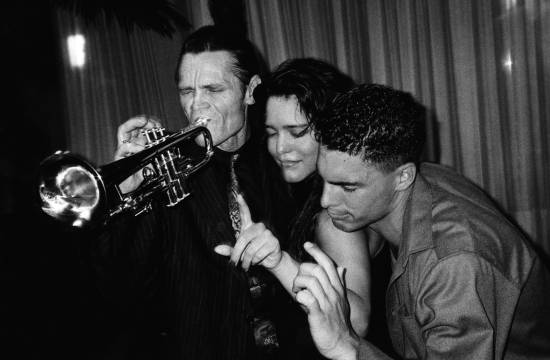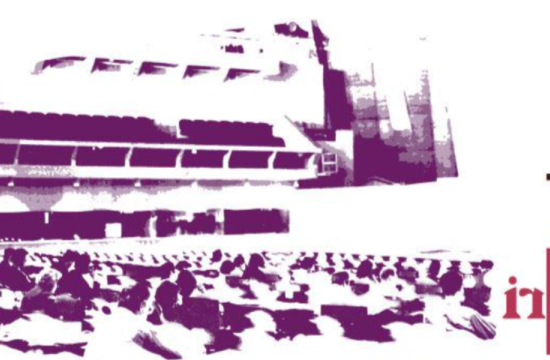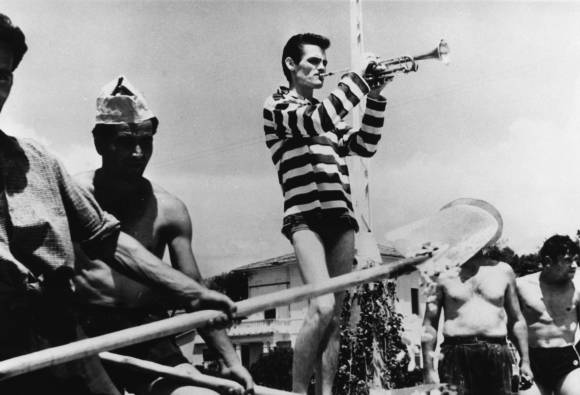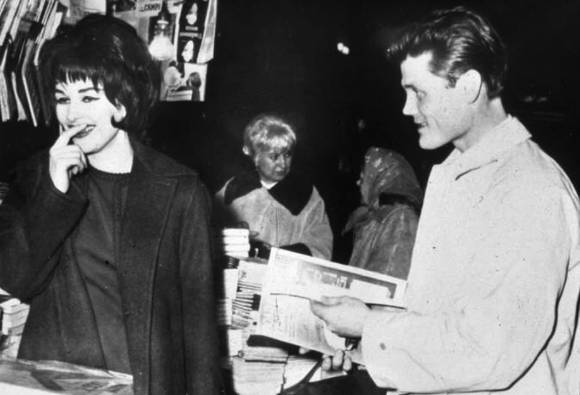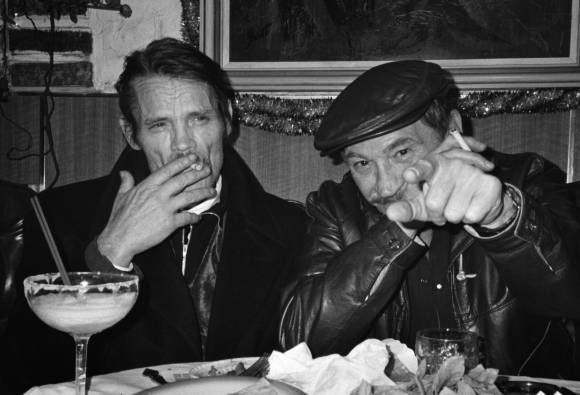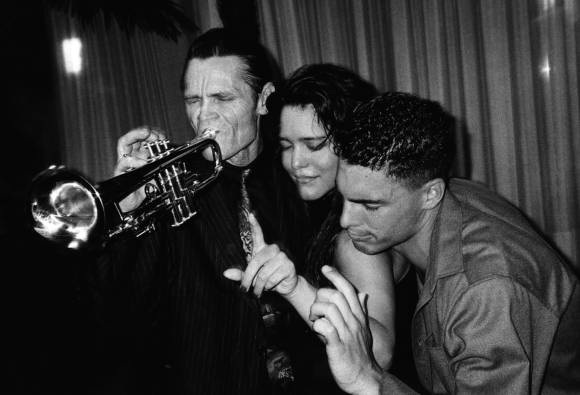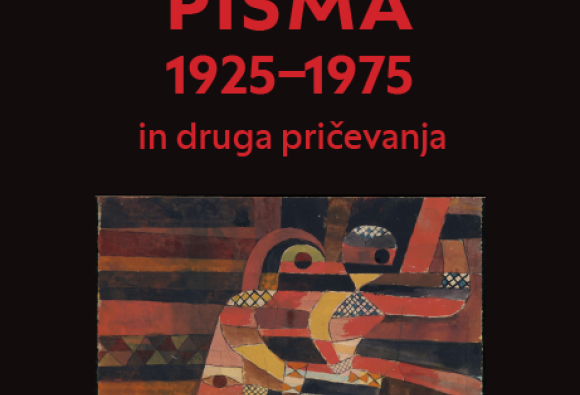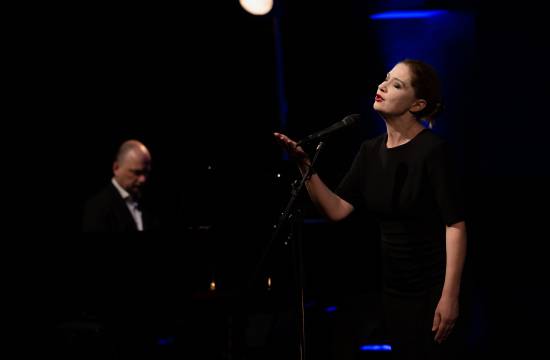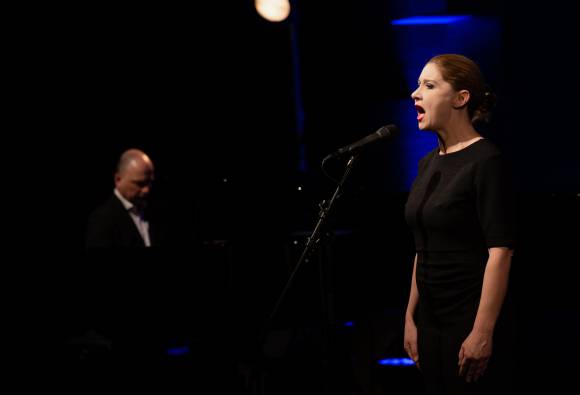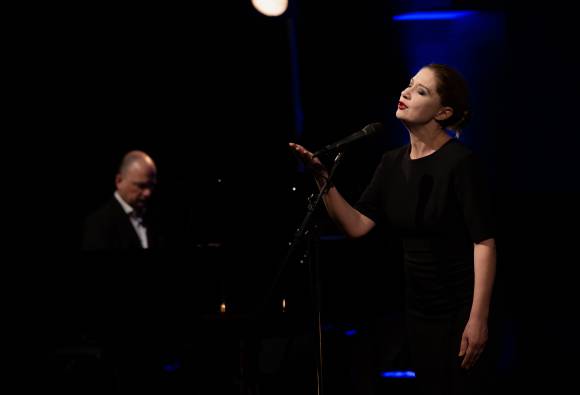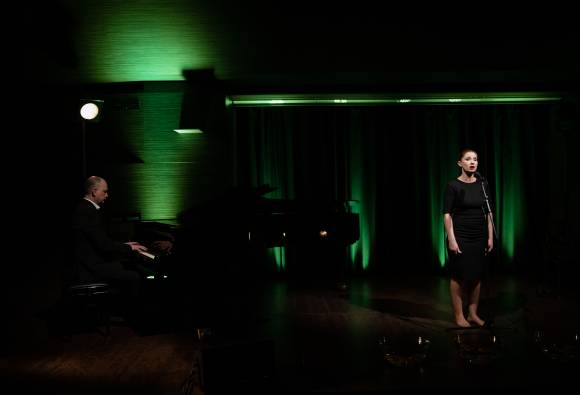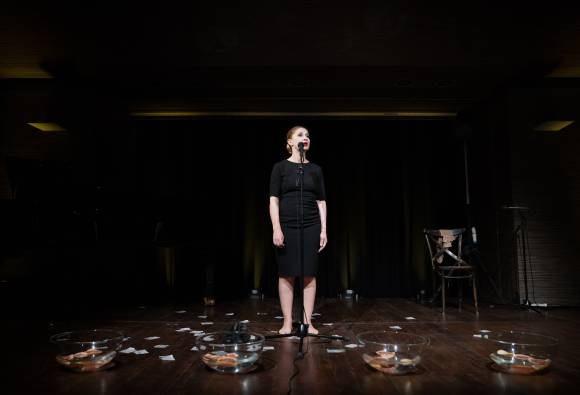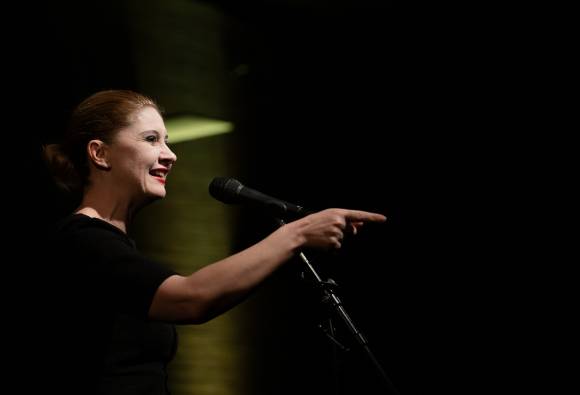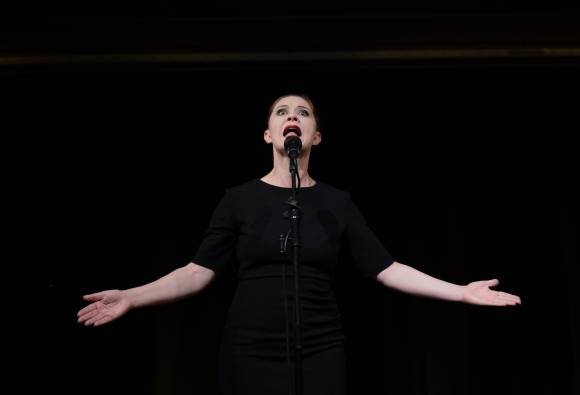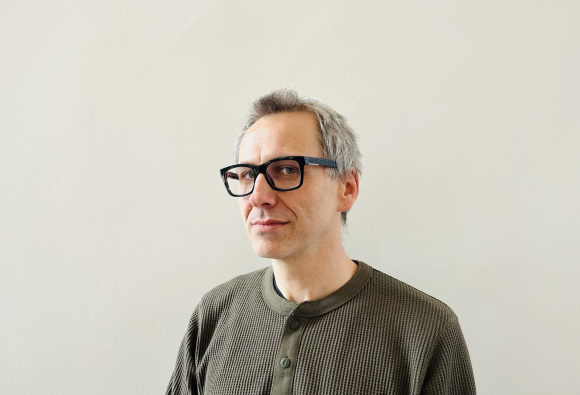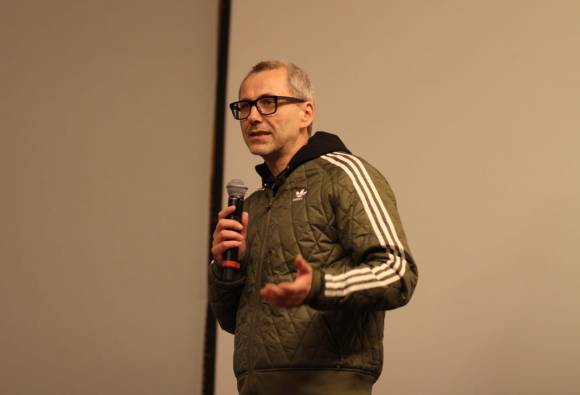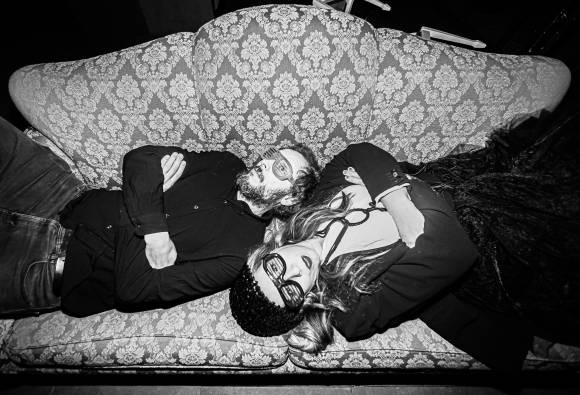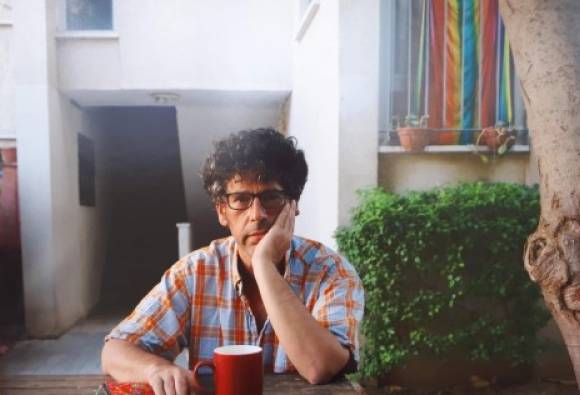
71st International Rostrum of Composers - IRC 2025
Organised by: International Music Council, RTV SLO, Tretji program Radia Slovenija – Program Ars
The 71st International Rostrum of Composers (IRC) will take place in Ljubljana, Slovenia, from May 13 to 16, 2025. Organized by the International Music Council in collaboration with RTV Slovenia's Ars Programme, this marks the first time the event is hosted in Slovenia.
Established in 1955, the IRC serves as a global platform for promoting contemporary music through radio broadcasting. Over the years, it has facilitated the dissemination of works by more than 400 composers, with selected pieces receiving extensive international airplay.
The 2025 edition coincides with the 80th anniversary of the Slovenian Composers’ Society and will feature concerts by the Slovenian Philharmonic and the RTV Slovenia Symphony Orchestra. Additionally, a special concert will celebrate the 60th anniversary of the Euroradio Jazz Orchestra.
The concert programme accompanying this year’s Rostrum includes:
-
Saturday, 10 May 2025: Slovenian Philharmonic Chamber Orchestra Matinee – Presentation of the International Rostrum of Composers and works from the SOS concert programme at the Marjan Kozina Hall of the Slovenian Philharmonic.
-
Tuesday, 13 May 2025: Discussion with Slovenian composers at the Julij Betetto Hall (Kazina) and a concert by accordionist Luka Juhart at the Club of Cankarjev dom in Ljubljana, featuring works by Slovenian composers who have succeeded at the Rostrum over the past decade, along with music by Vinko Globokar.
-
Wednesday, 14 May 2025: Slovenian Philharmonic Chamber Orchestra concert titled Awarded, featuring the most successful works from various editions of the Rostrum.
-
Thursday, 15 May 2025: Kromatika concert by the RTV Slovenia Symphony Orchestra.
-
Saturday, 17 May 2025: Closing concert from the Ars cycle “The Queen’s Visits” on Bled Island with Marko Hatlak, Polona Gantar, and Miro Božič.
The accompanying programme has been prepared in cooperation with the Slovenian Philharmonic, the Slovenian Composers’ Society, Cankarjev dom, and the Academy of Music in Ljubljana. All concerts will be broadcast live on Program Ars.
71st International Rostrum of Composers - IRC 2025
Registracija / Registration

14th Strategic Conference Value of Innovation
Health as a Driver of Socio - Economic Development
Organised by: Forum of International Research and Development Pharmaceutical Companies, EIG
For the 14th year in a row, Forum of International Research and Development Pharmaceutical Companies, EIG (FarmaForum) is organizing a strategic conference Value of Innovation, where we seek answers to current questions and offer insight into innovations in the field of pharmacy and healthcare.
Together with esteemed experts, we will discuss the mutual impact of healthcare and the economy and explore how collaboration across all societal subsystems can contribute to progress and greater societal well-being.
14th Strategic Conference Value of Innovation
Registracija / Registration

Let's Get Lost
Documentary film, music biopic
USA, 1988, 119'
Directed by: Bruce Weber
Cast: Chet Baker, Carol Baker, Vera Baker, Dean Baker, Missy Baker, Dick Bock, William Claxton, Flea, Hersh Hamel, Chris Isaak, Lisa Marie
Language: English, Spanish, Slovenian subtitles
Original medium: 35mm B&W print
Screened version: 4K DCP restoration
An intimate documentary about one of jazz's most enigmatic icons – trumpeter Chet Baker.
Featuring a series of outspoken interviews with Baker’s friends, family, associates and lovers, the film reveals the turbulent life of a groundbreaking artist venerated as the innovator of cool jazz who captivated audiences across the globe while struggling with his own dark demons. Archival footage from Baker’s earlier life is interspersed with performances from his last years, further highlighting the musician’s genius and the singular sound of his trumpet and voice.

Hot off the press
Hannah Arendt / Martin Heidegger: Letters 1925–1975 and other correspondence
Panel: Dr. Dean Komel, Dr. Alix Landgrebe, Dr. Vlasta Jalušič
The book Pisma 1925–1975 in druga pričevanja includes correspondence between Hannah Arendt, the German-born American political theorist and philosopher of Jewish descent, and her former professor, the philosopher Martin Heidegger. The letters reveal their complex personal and intellectual relationship, providing a unique insight into their thoughts, feelings and reactions to key events of the 20th century, including Nazism, wartime and post-war reflections. Illuminating, subtle and intimate, the correspondence offers a fascinating glimpse into the inner lives of two extraordinary thinkers.
In collaboration with the Goethe-Institut Ljubljana and the Faculty of Arts
Letters 1925–1975 and other correspondence

The performance lasts 60 minutes.
Twenty successful seasons of Piaf, Edith Piaf
The normal life of a theatre show can usually be counted on the fingers of one hand. If counting on three fingers, we’ve got a success story; if on all five, it’s a sensation. Extremely rare are the performances that count their years on the fingers of both hands. These are legendary shows. There are hardly any performances that need a third set of fingers to count on. These are solitary exceptions, monoliths that defy time and at the same time attest to the indestructible power of theatre, which is otherwise subject to transience. And that is why such a monolith, transcending the theatrical life of all ten fingers, is particularly worthy of attention.
Piaf, Edith Piaf is such a monolith. Twenty, yes, twenty years have passed since its premiere at Kavarna Union, on the ideal, but sadly no longer operational stage of perhaps the finest cabaret venue in Ljubljana. Anyway, what happened that December evening in Kavarna was by no means meant to survive, alive and kicking, over a span of two decades. Non-existent budget, but boundless enthusiasm, a young creative team at the beginning of their theatrical journey, not enough time, too much work and the determination to see the project through, no matter what form it would end up taking. It has evolved into a form with no superfluous detail, in which nothing gets “stale”, none of Vesna's gestures has “gathered dust”, everything in its place, clear, pure, direct, emotionally charged, powerful.
The success of Vesna's vocal-theatrical take on Edith Piaf – still with musical accompaniment by (also appearing as an actor!) Joži Šalej – was certain at the premiere, and later confirmed by the Borštnik Award for Best Actress, by numerous tours and the 20th anniversary of the production.
And it will be confirmed by the anniversary show in Cankarjev dom's Linhart Hall.
Mnenja o tem, kdaj umetniška stvaritev postane del t. i. klasičnega repertoarja in kateri so razlogi za to, so različna. Eden ključnih dejavnikov, ki jo med klasike uvrščajo, pa je poleg nagrad in obiska gotovo tudi število odigranih sezon. In Piaf, Edith Piaf, gledališki kabaret z Vesno Pernarčič v naslovni vlogi, letos vstopa v dvajseto sezono. Kar je gotovo dovolj za vstop med »nesmrtne«, hkrati pa odlična priložnost za gostovanje v Linhartovi dvorani, s katerim bo ponovno potrdila, da je še kako živa in pripravljena na (vsaj) še enkrat toliko let odrskega življenja.
Nobody could fail to notice her.
Nobody could imitate her.
Nobody can forget her.
Her name was Edith Piaf.
It seems the icon of Edith Piaf has lodged itself firmly in people’s consciousness: a gentle, fragile girl who rose from street singer to soul-stirring chanteuse. Nobody could have sung as beautifully and uniquely as Edith without not only having glimpsed but also tasted the dark side of life. The saying “only those who have endured hell can speak of paradise” undeniably applies to Edith.
The production was selected to compete in the 2004 Maribor Theatre Festival (Borštnikovo srečanje), where award-winning Vesna Pernarčič received the Best Actor Prize.
Vesna Pernarčič
Vesna first began performing professionally in her third year at the Ljubljana Academy of Theatre, Radio, Film and Television as Mirandolina in P. Turrini’s Die Wirtin directed by Samo Strelec (ZATO Theatre, Ptuj). After graduation, she joined the acting ensemble of the Slovenian Permanent Theatre in Trieste. After three years, she became member of the Prešeren Theatre Kranj, where her first role was that of Micka in Županova Micka (The Mayor’s Daughter) directed by V. Taufer. She is currently member of the Prešeren Theatre Kranj.
Selected awards: žlahtna komedijantka (awarded to actors in Slovenian comedy, 2019, 2012, 2007, 2005), Best Actor Award at the Maribor Theatre Festival (2018, 2004), Prešeren Fund Award (2014)
Piaf, Edith Piaf
20,00 EUR
18,00 EUR * * EUR for younger than 25 and older than 65, as well as pensioners.
Directed by: Tijana Zinajić
Dramaturg: Andrej Jaklič
Costume and set design: Jasna Vastl
Music Director: Žare Prinčič
Lighting design: Igor Remeta
Sound design: Matej Pernarčič
Performed by:Edith: Vesna Pernarčič
Pianist: Joži Šalej
Production: KD Gledališče EU enigma ustvarjanja

Norman Ohler: LSD for Mom (Tripped)
Talk hosted by Patricija Maličev
The renowned German writer and journalist Norman Ohler follows up his worldwide bestseller Blitzed, an exploration of Nazi drug use, with Tripped: LSD for Mom, in which he recaps the mid-century birth of psychedelics, laying out the impact of psychoactive substances on society and politics, this time in the post-World War II era.
A suspense-ridden, astonishingly vivid read verging on science thriller, the book takes us from the discovery of LSD and psilocybin to their impacts on modern medicine, legislation and public discourse. Ohler breaks down the three key roles of drugs: medicine, mind control tool and intoxicant. He also shares how the strict anti-drug laws have held back the therapeutic research of psychedelic drugs despite evidence suggesting that they help alleviate symptoms of mental disorders such as depression or dementia.
The journalist Patricija Maličev will talk to the author about his archival research in Europe and the US, touching on the prominent names that shaped the history of psychedelics use – from Aldous Huxley to Elvis Presley – and the experiment he carried out on his own parents.
The event will be held in English with simultaneous translation into Slovenian.
Norman Ohler: LSD for Mom (Tripped)

Critical Cabaret
Oliver Frljić
Patricija Maličev in conversation with the theatre director
Concept: Patricija Maličev and Srećko Horvat
Oliver Frljić is regarded as one of Europe’s most emblematic directors of the last two decades when it comes to the theatre of rebellion. His productions are punctuated with social revolt, expressing popular dissent against nationalism of any kind, the politics of the Catholic Church (which he is well familiar with), capitalism, the blindness it generates and the poverty it leaves in its wake, homophobia, the repercussions of colonialism, as well as patriotism and melancholy.
As an authority on post-Yugoslav and European space as such, Frljić claims that neither area has dispensed with historical fascism and its legacy. His shows often explore revisionist interpretations of political history, not least, he says, because we live in a time when countries each in their own way consent to at least one or more forms of fascism. But in the end, as one of Frljić’s productions has shown, what unfailingly remains is the casualty count, the lives destroyed, or victims claimed. Sometimes the aforesaid conditions provide the impetus for new political projects.
The April edition of Critical Cabaret will see Patricija Maličev in talk with Oliver Frljić, discussing the above issues, as well as his upcoming show Inkubator, which is scheduled to open at the Mladinsko Theatre in a few weeks' time.
Critical Cabaret: Oliver Frljić
7,00 EUR

Gibanica Moving Cake Festival:
Gibanica awards ceremony
The Slovenian Contemporary Dance Biennial – Gibanica awards two prizes.
• The Gibanica Grand Prix will be awarded by an international expert jury composed of:
Sandra Neuveut, director of CNDC La Briqueterie, France
Catja Loepfe, director of Tanzhaus Zürich, Switzerland
Monica Gillette, co-director of the Tanztriennale Hamburg, Germany
• The Audience Award is given to the dance performance that receives the most votes by the audience.
The Award Ceremony will be led by Daniel Petković, joined by the dancers from the choreographic laboratory.
* You can access the Club with the elevator from the Small gallery (Mala Galerija)
More about the international expert jury:
Catja Loepfe is since 2014 artistic director of Tanzhaus Zürich in Switzerland. Trained as a cultural anthropologist, she began her career as a freelance art curator and workshop organizer. She directed Zürich’s Rote Fabrik Theater (1999 – 2007) and worked at Gessnerallee Zürich (2007 – 2012), ending as its interim director. She then led the Zürich tanzt Festival and was member of the Artistic Board of the Zürcher Theater Spektakel.
Sandra Neuveut is the director of The Choreographic Development National Center – La Briqueterie since 2021 and served as president of the Association of Choreographic Development National Centers in 2024, and its treasurer in 2025. She was artistic advisor at the Théâtre de la Ville in Paris for the projects Chantiers d’ Europe (2019) and was deputy director of the Musée de la danse in Rennes, led by the choreographer Boris Charmatz (2009-2018). She teaches regularly at universities and on vocational training programmes and holds the title of Knight of Arts and Letters, awarded by the French Ministry of Culture.
Monica Gillette is a dance dramaturg, facilitator and Co-Artistic Director of the Tanztriennale 2026 in Hamburg. She has accompanied several EU-funded projects, including Dance Well, Migrant Bodies – Moving Borders, Dancing Museums – The Democracy of Beings, Empowering Dance and Aerowaves’ Moving Borders. She is a dramaturg and transformation coach at Tanzhaus Zürich and researcher for EDN – European Dance Development Network, resulting in the 2024 publication Practices of Care and Wellbeing in Contemporary Dance: Evidence from the Field.
Production: Contemporary Dance Association Slovenia
Partner and technical crew: Cankarjev dom
Sponsor: Hiša vin Emino, Hiša GIBANICE by HUDO DOBRO
With the financial support of the Ministry of Culture and the City of Ljubljana.

The opening night of SONICA 2025 includes three singular artists, builders of captivating and immersive soundscapes that operate at the intersection of electroacoustic and experimental music
Portuguese guitar trailblazer Rafael Toral is returning to Ljubljana with one of the most critically acclaimed albums of 2024, Spectral Evolution (Drag City Records, 2024), which landed on the AOTY lists of outlets such as The Wire, Pitchfork, The Quietus and Bandcamp Daily. No surprise, as his music sounds as if it were populated by fantastic creatures from the phantasmagorias of the master Hieronymus Bosch!
Polish SHAPE+ platform protégé, vocalist, sound artist and composer Antonina Nowacka is inviting us into her fantastic sonic realms that grow from new age and neoclassical traditions. Her elfin vocals and the ethereal timbres of various instruments (zither, harp, ocarina and others) wrap listeners in a blanket of fresh flowers and transport them to a mesmerising dreamworld.
While Slovenian musician and producer Jan Bajc Funa aka .čunfa is premiering his new project Stamor, an enthralling blend of dark ambient, ritualistic dungeon synths and black metal-via-doom riffs.
Rafael Toral (PT)
“We often talk of visionary albums, but Spectral Evolution should be celebrated for how visual it is, cracking open the listener’s mind’s eye to reveal an animated landscape populated by rare and exotic creatures.”
Jennifer Lucy Allan, The Guardian
Producer, composer and performer Rafael Toral is one of the most singular experimental guitarists of our age, involved with rock, ambient, electronic music and free jazz. He pioneered a blend of ambient and rock, recording acclaimed albums such as Wave Field (1998). In 2004, he launched the alien-sounding Space Program, an ambitious long-term project exploring electronic music based on silence and inspired by post-free jazz. The resulting music, “melodic without notes, rhythmic with no beat, familiar but strange, meticulous but radically free – riddled with paradox but full of clarity and space”, has been described as “a brand of electronic music far more visceral and emotive than that of his cerebral peers”. Toral practices an understanding of silence as “space” with a clear function in music creation. The release of Moon Field LP (2017) marked the beginning of new creative trajectories with the Space Quartet. Returning to the electric guitar with a renewed interest in harmony, Toral synthesized all of the above on the masterpiece Spectral Evolution (2024), which landed on many AOTY lists. He has toured around the globe and collaborated with Jim O’Rourke, Evan Parker, Phill Niblock and Sonic Youth, to mention a few.
Antonina Nowacka (SHAPE+, PL)
“Nowacka has such a distinctive voice and way of singing that makes me feel she is singing from beyond a threshold. She opens a small portal to a world not quite the same as this one.”
Jennifer Lucy Allan, The Quietus
Antonina Nowacka is a vocalist, sound artist and composer with a background in visual arts. Through years of sonic explorations in natural environments, studies of various music traditions and voice peculiarities, she has developed a deeply relaxing and hypnotic voice quality reminiscent of a theremin. Through her subtle soundscapes, she takes listeners on emotional imaginative journeys inspired by nature, space, dreams and otherworldly happenings. Her collaborators include names such as Agnieszka Polska, Nicolas Jaar and Sofie Birch. She performs all around the world in prestigious concert spaces, museums, art galleries and theatres such as Lincoln Centre (New York), Barbican Centre (London), Silent Green (Berlin), Centro National de las Artes (Mexico City) and Bourse de Commerce (Paris). She is an artist of the SHAPE+ platform for the season 2024/25.
Stamor (SI)
Live premiere of the album The Absurd (self-released, 2024)
“The album [...] leaves a great impression for its sophisticated, multi-layered production and well-thought-out dramaturgy. Its truly heavy mood plunges the listener into a black cloud of melancholy even on the sunniest summer's day. A soundtrack that doesn't require a film!”
Gregor Kocijančič, Mladina
Stamor is a new ambient project by Slovenian musician and producer Jan Bajc Funa aka .čunfa, whose debut album The Absurd (self-released, 2024) is described as “a homage to Albert Camus and his absurdism”. Bajc has channeled his love for minor-key riffs and ominous metal ambience into The Stamor project. It seems as if instrumental parts usually used as introductions or interludes on a post-metal record represent the essence of his expression. The pensive guitar tones are not followed by blast beats, downtuned riffage and unholy growls, but rather they are expanded with synthesised bass lines, ritualistic percussion, gothic synths and hypnotic field recordings. His expression is reminiscent of Burzum’s dungeon synth releases, Earth’s cosmic drones and, at times, Muslimgauze’s mystical chants. The Stamor project is marked by a sincere desire to grasp the poetics of the absurd.
Bajc will be joined on stage by Manuel Brajnik (guitar, electronics) and Rok Babič (guitar, sampler) from the band Spiral Mind.
SONICA 2025: -STREAM
15 - 18 April 2025
www.sonica.si
Co-produced by MoTA - Museum of Transitory Art, SONICA Festival Institute and Cankarjev dom. Supported by the Ministry of culture RS and the Municipality of Ljubljana - Department of Culture. Antonina Nowacka is an artist of the SHAPE+ platform for innovative music and interdisciplinary art, co-funded by the European Union and Pro Helvetia.
www.sonica.si
SONICA 2025 | Rafael Toral, Antonina Nowacka, Stamor
20,00 EUR
Doors: 20,00 EUR

Fabula in Theory: Noam Yuran
The Fabula Festival’s theoretical-humanistic event, in collaboration with the publishing house Analecta, is dedicated to Israeli philosopher and one of the leading contemporary theoreticians of capitalism, Noam Yuran. Noam's teaching and research turn to the history of economic thought as a way to explore alternative conceptualizations of the relations between economy and society. Yuran, a Senior Lecturer at Bar-Ilan University, studies how capitalist logic shapes our social norms, intimate relationships and consumer subjectivity.
The event places focus on Yuran's book The Sexual Economy of Capitalism, to be published in Slovenian translation by Analecta. In Sexual Economy Yuran maps the erotic dimension of capitalism onto concrete economic questions around money, goods, private property, and capital. Yuran offers readers a powerful understanding of capitalism in its unique articulation of love, sex, and money. In analysing marital relations, advertising, consumption and financial practices, Yuran shows how capitalism exploits the boundaries between what can be bought and what is outside the financial domain – but only seemingly. His theory goes beyond classical economic debates. Yuran argues that capitalist society is based on a paradox where the category of what money cannot buy is not a form of monetary limitation, but extension. Capitalism, through the eroticisation of consumption and advertising, creates a cultural economy that transforms the relations between sexuality, consumption and power. The book also examines the role of visual media in shaping 20th-century consumer subjectivity, at the intersection of economy, eroticism and social norms.
In What Money Wants: An Economy of Desire (2014), Noam Yuran argues that money is not merely a technical tool in the administration of goods, but a vehicle for complex human desires. His works help us understand how deeply capitalism has penetrated the most intimate recesses of humankind, profoundly reshaping our values and attitudes.
The talk will be hosted by Alenka Zupančič.
The event will be held in English, with simultaneous translation into Slovenian.
